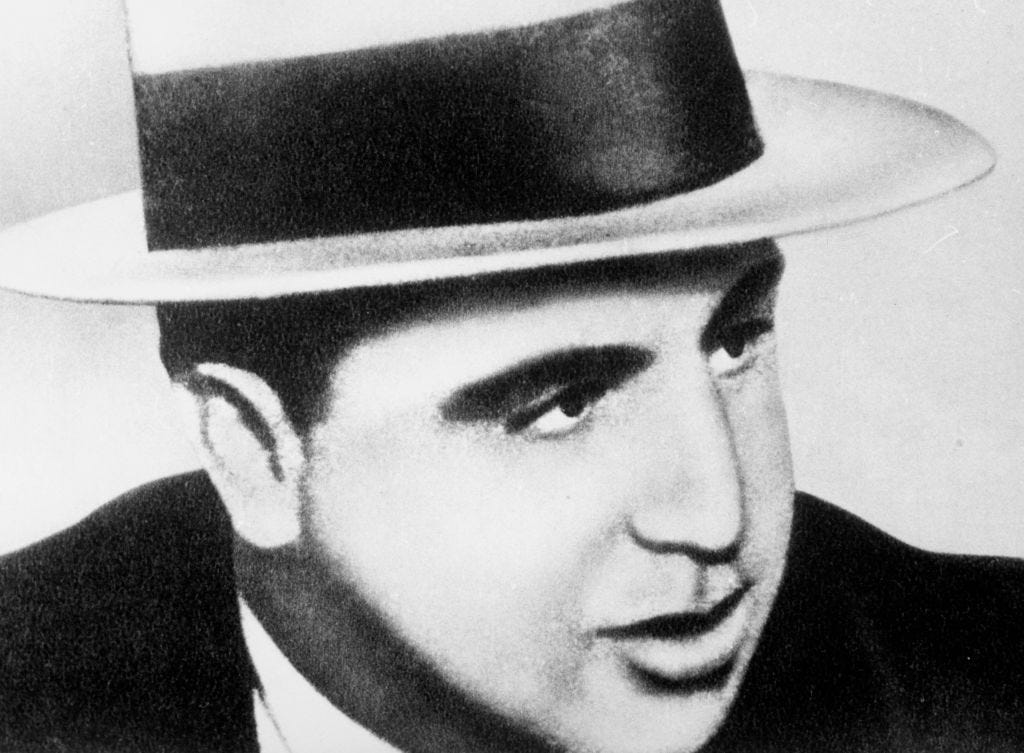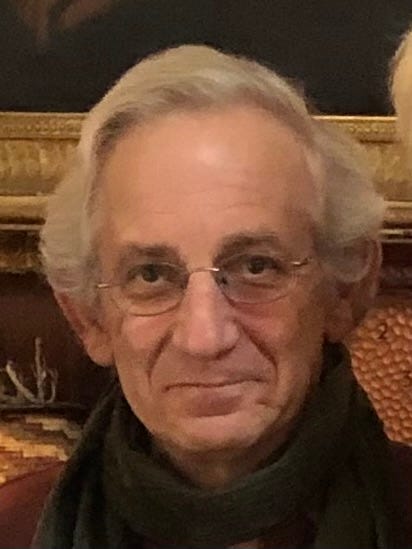Donald Capone
Legal analyst Roger Parloff on the parallels between two malfeasants
Donald Trump’s fate in his first criminal trial is up to the jury now. But did the district attorney make the right call in bringing this case in the first place?
In his column at Lawfare yesterday, former lawyer and legal commentator Roger Parloff made the case that what we’re seeing unfold in Trump’s hush-money trial is a lot like what we’ve seen historically in cases that brought down major organized crime figures — a smart prosecutor ultimately gets the kingpin on the charges he can make stick, even if those aren’t the crimes people might expect or hope to see punished.
Call it the “Al Capone factor.” In Parloff’s estimation, that’s exactly what District Attorney Alvin Bragg had in mind when he made the indictments that got us here. Far from being a side issue, the payoffs represent a clear violation of the law that — given the large amount of evidence that exists — could well lead to a conviction. But it’s also just a stronger case that’s more straightforward to make, relative to other lawbreaking.
The fact that the payoffs may seem like a side issue has thrown off some commentators on the political left and center, who have seen it as minor, a distraction, or too focused on the criminal, not the crime, leaving the door open for the opposition to claim the proceedings are politically motivated. But for Parloff, the case stands on its merits.
Weighing this evidence in the context of the many civil frauds Trump has been adjudicated to have committed, and the many crimes of which his closely held corporation and most essential business colleagues, Weisselberg and Michael Cohen, have been convicted, I have been persuaded. District Attorney Bragg was right to bring this case.
And remember: Al Capone did end up in Alcatraz.
A request for those who haven’t yet joined us: The interviews and essays that we share here take research and editing and much more. We work hard, and we are eager to bring on more writers, more voices. But we need your help to keep this going. Join us today to support the kind of independent media you want to exist.
And today we’re offering new paying subscribers a special discount of 20 percent. You will lock in this lower price forever if you join us now!
The fact that Al Capone was convicted, finally, on tax evasion charges rather than his other crimes has cast a long shadow over gangster movies and people’s understanding of the law. Can you talk about why gangsters always get caught for something other than the “object crime” — the really bad things everyone knows they’ve been involved in? Can you put the Trump hush-money case in that context? Why didn’t federal prosecutors go after him directly on campaign finance violations?
This is a good question, but, first, a point of clarification. When I used the phrase “object crime,” I was using it as a term of art that relates to the particular New York State statute being used in the Trump prosecution: falsification of business records. That crime, in itself, Penal Law 175.05, is a misdemeanor. But if the crime is committed with intent to commit or conceal another crime — for instance, in this case, an election law criminal conspiracy — it becomes a felony, under Penal Law 175.10. The other crime that one is alleged to have intended to commit or conceal — the factor that enhances the crime to a felony — is called the “object crime.” (My colleague Quinta Jurecic has discussed that situation here.)
Sometimes high-level organized crime figures are skilled at evading criminal prosecution precisely because they must be: criminality is so fundamental to their business. They have become sophisticated about how criminal cases are made and what sorts of proof are used. So they take precautions. They often commit crimes by giving orders that descend through several layers of subordinates, for instance, and where the orders are delivered in “coded” or euphemistic language. They avoid email. They speak carefully, assuming they may be being wiretapped.
There are signs that Trump takes some of these precautions. He famously does not use email and has reportedly chastised his lawyers angrily for taking notes. Michael Cohen has testified that Trump typically gave orders through indirect language and innuendo, like a mob boss.
Here, Trump is alleged to have committed his crimes through intermediaries, including Cohen and his CFO, Allen Weisselberg. Cohen, as we’ve seen, suffers from credibility issues — as many cooperating witnesses do, because they were helping the defendant to commit crimes before they turned state’s evidence. Weisselberg, who has pleaded guilty to 15 felonies and is currently jail for additional charges of perjury, has remained loyal to Trump and was not called by either side. So the prosecution is trying to make its case largely through emails, call records, texts, and, in a couple instances, surreptitious tape recordings Cohen made.
Can you explain why this needed to be a state case rather than a federal one? There’s a lack of clarity and coherence between state and federal election law, of course, but could you unpack that?





